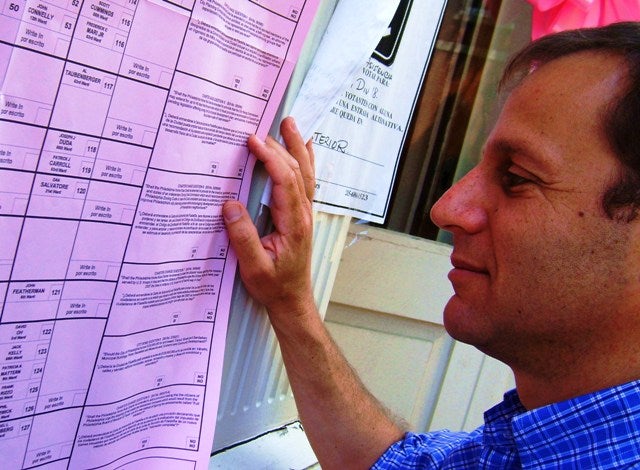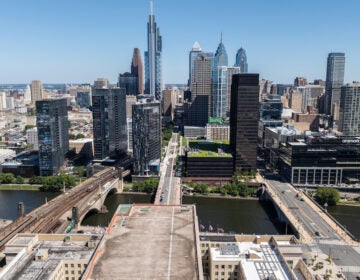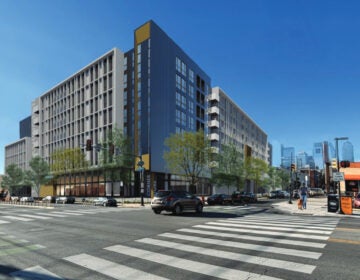Zoning reform approved

May 15
By Matt Blanchard
For PlanPhilly
Voters in Philadelphia endorsed a total overhaul of Philadelphia’s zoning code on Tuesday, with a landslide 79 percent saying “yes” on referendum question six.
Question six called for the convening of a Zoning Reform Commission to rewrite the 1962 code, which is criticized as an out-dated obstacle to smart planning and development in a city that needs growth.
At the polls, some of the 150,000 voters who endorsed six reported having no knowledge of the question until they got into the booth. Apparently, they liked what they read.
“It seemed, as I read it, like it would result in more sensible zoning,” said David Sternberg of Fairmount, who said he hoped the commission would embrace “sensible land use and environmentally sustainable development.”
With 146,000 Philadelphians in support and just 39,500 against, question six enjoyed one of the most decisive victories of yesterday’s complex primary election, drawing far more support than the winning mayoral candidate, Michael Nutter. Only one issue was more popular, and it too dealt with smart planning: Question 4 called for the Planning Commission to include professional architects and planners. It won with 155,000 supporters, 81 percent of the vote.
An informal survey of voters found widespread frustration with the current code.
“It seems like every project that comes along needs some variance or another,” said Mike Seidenberg, a Center City realtor and Republican candidate for City Council in the 1st District. “As a realtor, I’m familiar with the difficulty of getting variances. And the only way the community has input is at the end of the process, not the beginning.
“The key to the whole thing is this: Any time you bring planning in, it benefits the community,” Seidenberg said. “There can be an agreement up-front about what the neighborhood should look like. You minimize the conflict between developers and neighbors … It could take ten years, but we’ve got to think ten years ahead.”
The only voter who reported voting against question six said he was himself a zoning “facilitator,” one in a cottage industry of lawyers and handlers paid to guide businesses through Philadelphia’s complex code. Since his specialty is scoring permits for massage parlors, the man, a Point Breeze native, asked not to be named in print.
“There are plenty of loopholes in the code,” he said. He opposed any code re-write because he knows the current code so well. “It’ll mess up my mind,” he said.
The process of reform
Now that question six has passed, Philadelphians have several years of work ahead of them.
First comes the appointment of a 31-member Zoning Reform Commission. All zoning consists of two elements, the code of regulations and the maps that show where those regulations apply. The Commission’s job is to tackle the first half, proposing specific changes to the zoning code.
The commission will be chaired by City Planning Commission head Janice Woodcock, an architect and former head of Philadelphia’s AIA chapter.
The commission’s membership will draw from government, business and community groups, including 10 citizens with zoning experience (half appointed by council and half by the mayor), 10 community leaders (appointed by district council leaders), 5 representatives of the city’s five Chambers of Commerce, 3 members of City Council and 2 department heads from city government.
After rewriting comes re-mapping. The City Planning Commission now moves to center stage, working with each neighborhood to develop a local master plan.
Current land uses are mapped, as are proposed changes. The new map must first be approved by the community, and later at public meetings of the Planning Commission and City Council before it gains the force of law.
(No zoning change, however, can take away an owner’s right to continue using their property as they did before the change.)
How long will it take? Re-mapping took 9 months per neighborhood when conducted in Pittsburgh, and it rarely goes off without controversy. As always, clashes occur between business interests and those who defend neighborhood quality of life.
Yet with strong support on all sides for Question 6, the time seems right to balance these interests. The referendum question itself sets the tone, promising to both “encourage development” and “protect the character of Philadelphia’s neighborhoods.
BALLOT QUESTION #6
Bill No. 060699: Creating an independent Zoning Code Commission Shall the Philadelphia Home Rule Charter be amended to provide for the creation, appointment, powers and duties of an independent Zoning Code Commission which would recommend amendments to the Philadelphia Zoning Code to make the Code consistent and easy to understand, and to enhance and improve Philadelphia’s city planning process while encouraging development and protecting the character of Philadelphia’s neighborhoods
WHYY is your source for fact-based, in-depth journalism and information. As a nonprofit organization, we rely on financial support from readers like you. Please give today.






